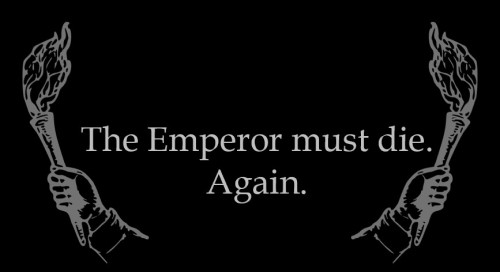TTRPG Thoughts: A Torch in the Dark


A Torch in the Dark is a solo TTRPG by Michael Elliott with a focus on fantasy dungeon crawling; you can find it on itch.io as well as DriveThruRPG. One plays as a survivor of the Peoples' Revolution, a person who is haunted by the ghost of the mother of that revolution as they attempt to silence the unquiet spirits of the slain nobility through a series of nine subterranean dungeons. The mechanics are described as a "stream-lined" version of John Harper's Blades in the Dark, and are here optimized for a single-player, GM-less experience. This game doesn't have the journaling aspect that I'm often drawn to in solo TTRPGs, but since Elliott cites one of my favorite video games as inspiration (Darkest Dungeon by Red Hook Studios) I couldn't not play it.
Firstly, I love the layout and artwork for A Torch in the Dark. Aside from the cover, this is an incredibly printer-friendly document! ...Which is a good thing, because it's long. The game's PDF of rules and dungeon guides is 70+ pages, which really cut into my printing allotment at the university library—but it's okay because I never really use my allotment for anything except stuff like this. If you look on the example pages on itch.io, you can see a single column, black and white layout with equally black and white line drawings for flavor—the entire document is like that. It's very clean and simple, and the line drawings really fit the grimly medieval atmosphere. I liked this game enough that I splurged and got a binder as well as some sheet protectors so that my print-out of A Torch in the Dark could go on my TTRPG shelf.
However, I must insert my usual plea for an Open Dyslexic version of the game, or some kind of font that makes the game more accessible for those with dyslexia.
I haven't yet played Blades in the Dark (finding a new group can be hard, and I can persuade my regular D&D players to pick up a new system only so often before they get annoyed with me), so I can't speak as to whether A Torch in the Dark is a fitting homage to the system. If you're curious about the relationship that Torch has to Blades, as well as curious about some of the more general history of the game's creation, I would suggest listening to this episode of the podcast "Hacked in the Dark."
The game's plot centers around the aftermath of a socialist revolution wherein all of the corrupt, decadent, demon-summoning nobility were killed by the revolutionaries, but with his dying breath the emperor cursed these usurpers so that the dead aristocrats, rising up from below, would continue to be a thorn in the side of this post-revolution country—perhaps so much so that the revolution will be undone. (And so the PC must step in here, to kill all of the nobles a second time). There is no attempt to look at "both sides" of the "argument" here, which is refreshing—the societal parasites were undeniably evil and deserved to die, although the revolutionaries themselves aren't painted in rosy hues like a USSR propaganda poster. I really enjoyed the game's lack of political hand-holding; it lets you infer things from scattered bits of description rather than attempting to spoon-feed the player socialism with applesauce to make it more palatable.
A Torch in the Dark is surprisingly simple to play; the bulk of the PDF is composed of card prompts for each of the nine dungeons that the player character needs to progress through before the former emperor's death-curse against the people of Kynburgh can be nullified—over 450 prompts, actually, since the entire deck makes the rounds with each of the nine dungeons. (Elliott, how the heck did you come up with that many prompts?) It's really just the first 24 pages that contain the core rules. There are only two phases of play: delves, where the PC ventures into the dungeons beneath Kynburgh to fight demons and the undead, and then downtime, where the PC returns to the surface and does what they can to recuperate and replenish their supplies.
Overall, I really liked this game! The number of card prompts is absolutely staggering, and even clearing just the first dungeon takes a good while—your odds of picking the card with the dungeon's chief occupant, the target of the PC's delve, are initially 1 out of 52. It really feels like an accomplishment when you pick the card that signals an encounter with the dungeon's target and then defeat them!
My only real complaint, aside from seeking a version of A Torch in the Dark that's more dyslexia-friendly, is that the game has no narrative denouement; when you finish the ninth dungeon and defeat the former emperor, the game just... ends. There is no resolution of Brada's ghost finding rest, or the Revolution either falling apart or creating a successful socialist state, or the PC attaining any level of peace, fame, or what have you after they accomplished these nine amazing feats. However, I tend to look at all games from a storytelling perspective, so plot and characters are really important to me—I'm sure that's not the case with everyone. If you enjoy a TTRPG with a focus on overcoming various obstacles, managing supplies, and acquiring new skills with which to overcome said obstacles, then this game is definitely for you! If you're seeking a TTRPG with a heavier story/character focus, then A Torch in the Dark is something you might want to think about before buying. You can definitely use this game as a creative writing tool, but it's not as easily adapted for that kind of use as a game like Apothecaria.